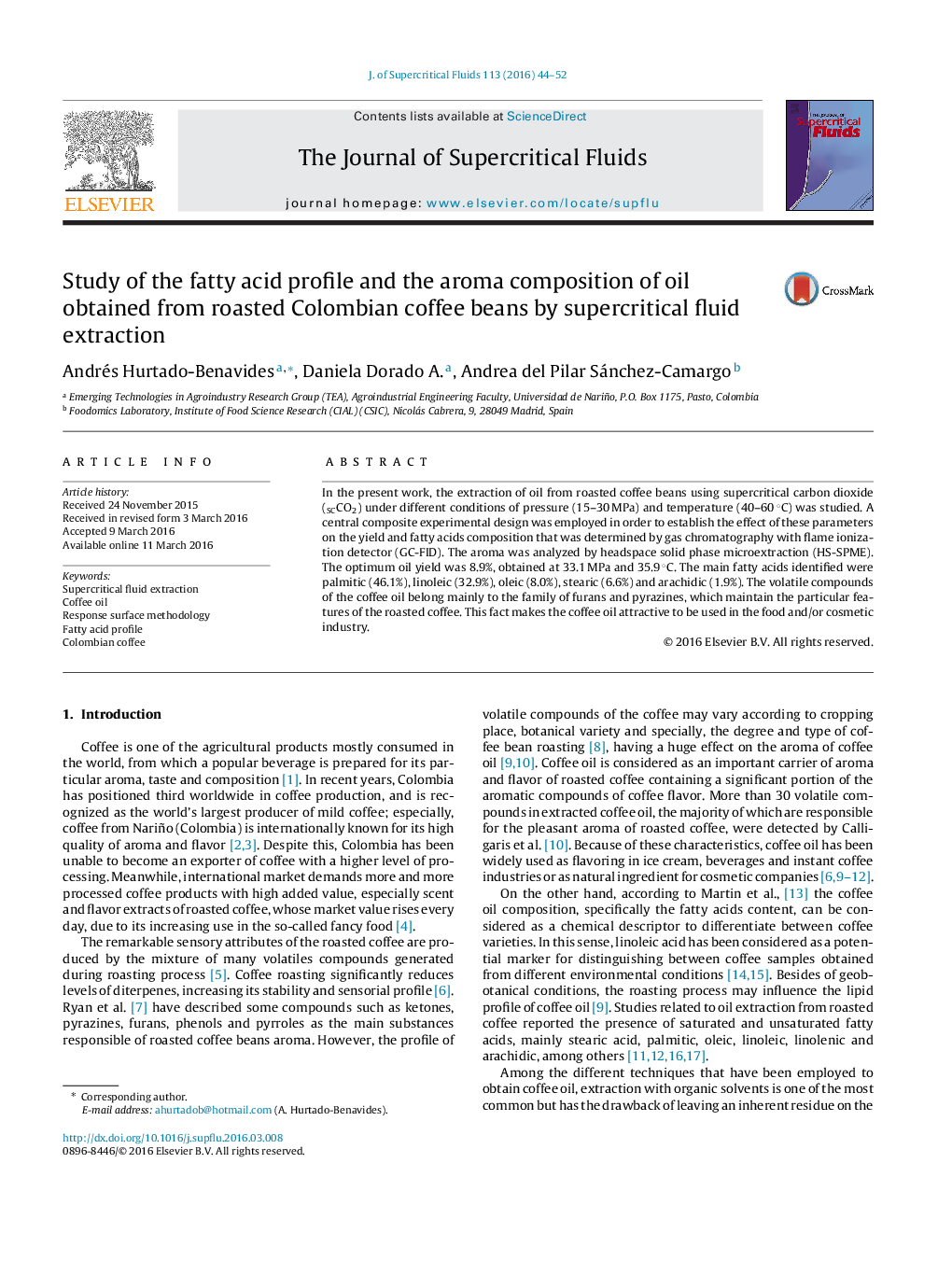| Article ID | Journal | Published Year | Pages | File Type |
|---|---|---|---|---|
| 229992 | The Journal of Supercritical Fluids | 2016 | 9 Pages |
•The aroma and fatty acid profile of Colombian roasted coffee oil was studied.•Supercritical pressure and temperature had a significant effect on extraction yield.•Optimum yield (8.9% w/w) of the coffee oil was obtained at 33.1 MPa and 35.9 °C.•The main fatty acids in the coffee oil were palmitic and linoleic acids.•The coffee oil contains the main volatile components of the roasted coffee beans.
In the present work, the extraction of oil from roasted coffee beans using supercritical carbon dioxide (SCCO2) under different conditions of pressure (15–30 MPa) and temperature (40–60 °C) was studied. A central composite experimental design was employed in order to establish the effect of these parameters on the yield and fatty acids composition that was determined by gas chromatography with flame ionization detector (GC-FID). The aroma was analyzed by headspace solid phase microextraction (HS-SPME). The optimum oil yield was 8.9%, obtained at 33.1 MPa and 35.9 °C. The main fatty acids identified were palmitic (46.1%), linoleic (32.9%), oleic (8.0%), stearic (6.6%) and arachidic (1.9%). The volatile compounds of the coffee oil belong mainly to the family of furans and pyrazines, which maintain the particular features of the roasted coffee. This fact makes the coffee oil attractive to be used in the food and/or cosmetic industry.
Graphical abstractFigure optionsDownload full-size imageDownload as PowerPoint slide
